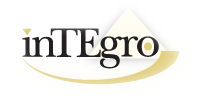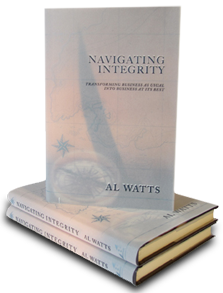Yes, I really do mean values proposition, not value proposition. We’re accustomed to thinking of an organization’s or business value proposition – the degree that it meets the needs, wants and requirements of target markets and customers. We pay less attention to how the values of an organization, its leaders and members add to the bottom line.
Authentic, clearly articulated organizational values can contribute value in multiple ways:
- As Alexander Hamilton put it: “If we don’t know what we stand for, we’ll fall for anything.” Solid values serve to steer us away from actions that lead to trouble.
- Clearly articulated values can serve as beacons for employees that we want to attract, and discourage others from applying or staying.
- Recent studies reveal that understanding an organization’s values and recognition that reinforces those values contribute significantly to employee engagement.
- Values aid decision-making and problem solving; as Roy Disney put it: “It’s not hard to make decisions when you know what your values are.”
- Organizational values can serve as meaningful differentiators in crowded markets. Increasingly, CSR – corporate social responsibility – is playing a significant role in consumers’ buying decisions.
- Foundational values contribute to effective change management; when it seems that everything else is changing, they serve a steadying role.
For reasons like these, the research of Jim Collins and Jerry Porras (Built To Last, 1994) demonstrated how organizations with a strong core ideology (purpose + values) significantly outperform those without one. A values proposition doesn’t just happen when a small subset of an organization – even its executive team – publishes five or six values that they hope will serve as guiding principles. Here is what drives the value of values:
Resonance – Do stated values resonate with customers, potential customers, employees and key stakeholders? I prefer to work in an organization that stands for something and with values like mine, don’t you? For most, motivation is higher when working for something that we identify with and believe in. Likewise for customers; increasingly, customers are more likely to factor an organization’s or suppliers’ values and ethics into buying decisions. Social media have multiplied this dynamic; consumers can hardly ignore news today about overseas garment factory fires and criminally unsafe working conditions, for example.
Authenticity – Employees and customers easily see through lists of values that are just that – lists of politically correct values statements or principles to look good or satisfy compliance requirements. Genuine values statements can come from deeply held founding beliefs or principles reinforced over time; they can also be crafted via an organic process that mines what employees, customers and stakeholders already hold dear. Most important, actual values are those in practice, not just espoused, by an organization and its leaders. Gaps between employees’ or customers’ actual experiences and organizations’ professed values are among the biggest detractors from employee engagement and customer loyalty. Howard Schultz, Starbuck’s Chairman, captured it perfectly when he said that “winners see challenges as opportunities to reinforce their values; losers see them as reasons to abandon them.”
Communication – An interesting study by Burston Marstellar in 2010 demonstrated that effective communication of organizational purpose, including values, positively impacts financial performance by up to 17%. Elements of effective communication strategies include communication by senior leadership, alignment of internal and external messages, integration with existing systems and practices (like performance appraisal, orientation and training,) repetition and redundancy. Values clarity is critical, as is a process for achieving it. The actual labels for values are not as important as what they actually mean operationally; for proof consider the different meanings attached to “pro-family” or “family values.”
Again, most important is that actual practices, especially senior leaders’ behavior, do not send conflicting messages; in those cases, as Ralph Waldo Emerson put it: “Your actions speak so loudly, I cannot hear what you’re saying!”
Alignment – inTEgro’s Organizational Integrity Survey identifies disconnects between stated values and actual practices. Sometimes disconnects are between espoused values and leadership behaviors; sometimes disconnects are between stated values and systems or processes like compensation, performance evaluation, training or measurement. There could have been no doubt that BP claimed to value safety; safety messages were plastered everywhere. Investigation of their Gulf oil platform explosion, however, revealed that speed, efficiency and cost reduction trumped safety; it was yet another example of “profit over principle,” like so many of the contributors to our 2008 financial market meltdown. As Upton Sinclair reminded us: “It’s hard to get someone to understand something if their salary depends on them not understanding it.”
Perhaps it’s time for a values audit in your organization:
- Does your organization have clearly stated values or principles?
- Do your stated values resonate with what’s important to your employees, customers and key stakeholders?
- Does everyone know how stated values translate in their roles – what to do and what not to do?
- Do your senior leaders especially consistently model your organization’s espoused values?
- Are your stated values useful making critical strategic and operational decisions?
- Do any of your organization’s systems, policies and practices – especially compensation, recognition, promotions, performance management and training – reinforce organizational values, or do they send mixed messages?
I hope that these guidelines help you craft your organization’s values proposition. Email me at awatts@integro-inc.com, and I will be happy to send you a pdf excerpt from my book about how to leverage the value of values.






